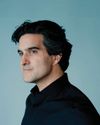Data-savvy scientists like DANIEL COHEN of Pharnext are using ARTIFICIAL INTELLIGENCE to figure out how to turn combinations of existing drugs into promising new therapies. Can they unclog Big Pharma’s drug pipeline?

IN THE ELEGANT QUIET of the café at the Church of Sweden, a narrow Gothic-style building in Midtown Manhattan, Daniel Cohen is taking a break from explaining genetics. He moves toward the creaky piano positioned near the front door, sits down, and plays a flowing, flawless rendition of “Over the Rainbow.”
If human biology is the scientific equivalent of a complicated score, Cohen has learned how to navigate it like a virtuoso. Cohen was the driving force behind Généthon, the French laboratory that in December 1993 produced the first-ever “map” of the human genome. He essentially introduced Big Data and automation to the study of genomics, as he and his team demonstrated for the first time that it was possible to use super-fast computing to speed up the processing of DNA samples.
Scientists worldwide have built on Cohen’s insights, and Cohen himself, an MD with a Ph.D. in immunology, has gone on to success as a researcher and pharma executive. But a quarter-century later, genomics has yielded few of the kinds of paradigm-changing medical breakthroughs that many of its early innovators hoped for. Today, as chief executive and founder of Paris-based drug startup Pharnext, Cohen is striving to understand why that rainbow hasn’t led to a pot of gold.
“Any protein in the body has many different functions, not only one,” he says, returning from the piano to talk with me, “just as you are a person who has many functions in the population, not just one.” The phenomenon Cohen is describing is “pleiotropy,” the capacity of a single gene to have multiple, seemingly unrelated effects. It is one of the complexities of disease that has repeatedly frustrated medical researchers in their quest for therapies for the most stubborn illnesses.
This story is from the April 2019 edition of Fortune.
Start your 7-day Magzter GOLD free trial to access thousands of curated premium stories, and 9,000+ magazines and newspapers.
Already a subscriber ? Sign In
This story is from the April 2019 edition of Fortune.
Start your 7-day Magzter GOLD free trial to access thousands of curated premium stories, and 9,000+ magazines and newspapers.
Already a subscriber? Sign In

THE NEW GOLD RUSH
Gold prices have soared amid global uncertainty and a central-bank-driven buying spree. But this time, the gold mining industry looks very different.

A New Season for Giving
As the PGA TOUR kicks off its 2025 season alongside its sponsors in Hawai'i, the organization is continuing to make an impact in local communities.

WELCOME TO ELONTOWN, USA
The small town of Bastrop, Texas (pop. 12,000), has become a home base for Elon Musk's business empire. What comes next is anyone's guess.

100 MOST POWERFUL PEOPLE
Our inaugural, authoritative ranking of the leaders whose innovation and impact have elevated them to the top of the business world.

ARE CEO SABBATICALS THE ULTIMATE POWER MOVE?
WHEN VENTURE capitalist Jeremy Liew and his wife were dating, they talked about how one day they would take a year to travel the world. \"That's how we'd know we'd made it,\" Liew says.

WHAT ARE THE BEST METRICS FOR MEASURING A STARTUP'S POTENTIAL?
IN HIS 2012 ESSAY \"Startup = Growth,\" Paul Graham talks about a 5% to 7% weekly growth rate as table stakes for startup success. If you're growing 10%, he says, you're doing \"exceptionally well.\"

TECH POLYMARKET'S ELECTION ACCURACY MADE SHAYNE COPLAN A STAR-BUT AN FBI RAID POINTS TO TROUBLE AHEAD
IN NOVEMBER, Shayne Coplan had a week he'll remember for the rest of his life: He got a phone call from the highest echelons at Mar-a-Lago. He went on TV for the first time. And his New York City apartment was raided by the FBI.

WHY BIG TECH IS THE NUCLEAR INDUSTRY'S NEW BEST FRIEND
OVER THE PAST several years, Big Tech firms like Google and Microsoft have trumpeted ambitious plans to go carbon-neutral, or even carbon-negative, by 2030. But then the generative-AI boom came along and threw a giant wrench in their plans.

WHAT PALMER LUCKEY, THE MAN REVOLUTIONIZING WARFARE, IS AFRAID OF
PALMER LUCKEY, the founder of the $14 billion Al-powered weapons startup Anduril, has become the face of change in the defense industry.

GLOBAL BUSINESS BRACES FOR TRUMP 2.0
AROUND THE WORLD in 2024, voters chose change: in South Africa, France, Britain, and Japan. But nowhere does the anti-incumbent trend matter more than in the United States.